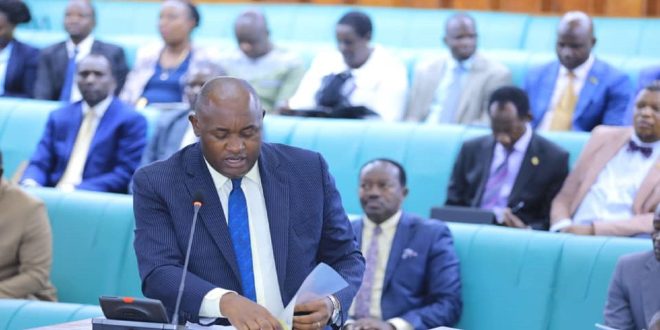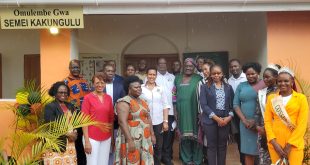The Minister for Information, Communication, Technology and National Guidance, Chris Baryomunsi, has announced government plans to expand internet connectivity to all sub-counties. This initiative will be funded through a US$150 million loan from the Exim Bank of China.
Baryomunsi revealed that the government will extend the National Backbone Infrastructure (NBI) beyond ministries, departments, agencies (MDAs), and district headquarters to reach all sub-counties.
“This is vital for ensuring that all regions benefit from the digital economy. Last-mile connectivity, which links the NBI to end-users, is essential for comprehensive access to e-Government services,” he explained.
The Minister disclosed this during a session of Parliament chaired by Speaker Anita Among on Tuesday, November 26.
His statement outlined two key projects aimed at boosting internet coverage: the 2022 Uganda Digital Acceleration Project (UDAP) and Phase V of the National Backbone Infrastructure (NBI) project.
The UDAP, funded by the World Bank with US$200 million (including a US$60 million grant), and the NBI Phase V project, financed by the Exim Bank of China at a cost of US$150 million, are the cornerstone initiatives.
Baryomunsi informed MPs that the government has so far laid 4,298.87 kilometres of optical fibre cable, connecting 1,567 MDAs, hospitals, districts, and other entities to high-speed internet.
Under the UDAP project, plans are underway to extend the fibre network to 63 additional districts, construct 21 transmission sites, and provide last-mile connectivity to 2,800 sites across the country.
The Minister highlighted the success of e-government services, including the Integrated Financial Management Services (IFMS), e-Government Procurement System (e-GP), e-Passport, e-Visa, Health Management Information System (HMIS), Education Management Information System (EMIS), and the Parish Development Model Online System (PDMIS).
“These digital services have significantly enhanced efficiency within government and improved public service delivery. Expanding economies of scale will further reduce internet bandwidth costs,” Baryomunsi stated.
Additionally, 10 major border points have been connected to the network, streamlining customs clearance, immigration, and e-visa applications.

While acknowledging the progress, MPs raised concerns over the functionality of existing Wi-Fi hotspots.
Kalangala District Woman MP Helen Nakimuli noted that some of the reported 300 Wi-Fi hotspots are not operational. “I urge the minister to verify hotspots like MyUg Wi-Fi, which are not working despite being meant for urban centres,” she said.
Nakimuli also praised plans to extend internet infrastructure to island districts but urged better coordination between the ICT and road construction ministries to ensure seamless installation of cables and masts.
Dickens Kateshumba (Sheema Municipality) called for a focus on tracking the projects’ impact.
“Increased internet connectivity should translate into measurable benefits such as enhanced production and affordability. Parliament is interested in seeing the tangible outcomes tied to these loans,” he stated.
The government’s ambitious plans to bridge the digital divide aim to bring the benefits of technology to even the most remote areas of Uganda, with a focus on driving development and improving public services.
Source link
 The Impalaa Reports Impalaa is your biggest news source in Uganda and the East African region, bringing breaking news, daily updates, and the latest stories from Uganda.
The Impalaa Reports Impalaa is your biggest news source in Uganda and the East African region, bringing breaking news, daily updates, and the latest stories from Uganda.



